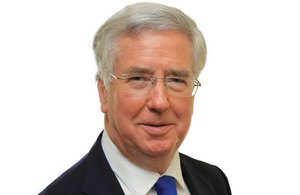UK to enhance NATO's ability to rapidly respond to threats
Defence Secretary Michael Fallon has authorised a package of defence support to allies in the East of Europe.

Defence Secretary Michael Fallon. Crown Copyright.
The Defence Secretary Michael Fallon has authorised a package of defence support to allies in the East of Europe as they face threats such as aggression from Russia.
The package includes:
- 500 troops to Estonia to provide reassurance and to react immediately to any crisis or incident.
- Thousands of troops on standby to deploy within days, wherever needed, as the UK leads NATO’s quick reaction spearhead force.
- Around 150 personnel with equipment to deploy to Poland to operate and train alongside each other to improve interoperability.
- A target to train 4000 Ukrainian soldiers by the end of March 2017.
Attending the NATO Summit in Warsaw, Mr. Fallon said:
These deployments show Britain taking a leading role in NATO, protecting the security of our Baltic allies. We can do this because we are increasing defence spending every year for the rest of the decade.
These deployments are on top of the work the UK already does to help NATO bolster the defence of allies in the region. We have:
- Committed to a minimum of 2% of GDP spend on Defence and have set in motion the most significant programme of strengthening collective defence in a decade.
- Contributed four RAF Typhoons to the Baltic Air Policing (BAP) mission until the end of August. The jets are on 24/7 standby to respond instantaneously to encroachment in NATO airspace.
- Participated in joint exercises such as Exercise Anakonda in Poland – the largest NATO exercise in 2016 which included 800 troops and Army vehicles.
- Contributed five ships including HMS Iron Duke, HMS Ocean and HMS Pembroke to NATO exercises in the Baltic Sea.
- Continued to train the Ukrainian Armed Forces in countering-IEDs, operations in urban environments, medical care, logistics and operational planning. The UK has also gifted over £1million worth of equipment to the country.
- Provided reassurance and training support to the armed forces of the Baltic States and Poland as part of the US-German-UK Transatlantic Capability Enhancement and Training (TACET) initiative.
These measures all flow from actions agreed at the last NATO Summit in Wales in 2014, where a Readiness Action Plan was agreed with the aim of sending a clear signal to Russia in the wake of the illegal annexation of Crimea.
While at the NATO Summit the Defence Secretary was due to meet with allies including the US, France, Poland, Germany and Finland. During the meeting with his Finnish counterpart, Mr Jussi Niinistö, Michael Fallon will sign a framework agreement for defence cooperation as a demonstration of the importance placed on the UK’s relationship with the country.